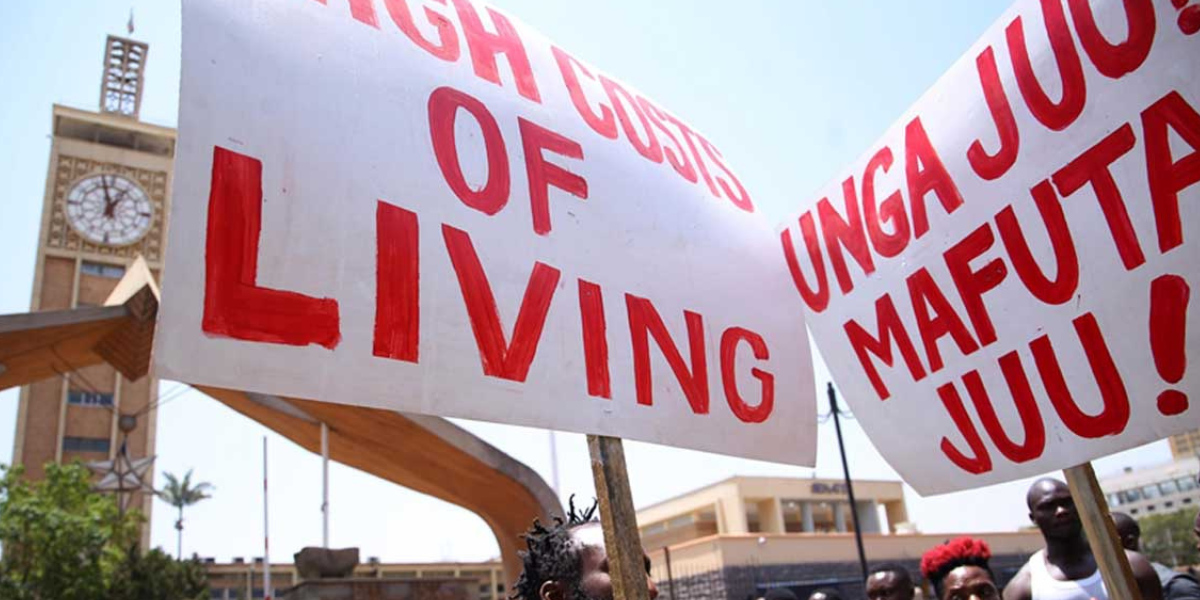The Kenyan High Court blocked new charges on national identity cards, biometric passports, and civil registration papers amid the cost-of-living crisis, and protests surged nationwide against the judgement.
An outcry echoes through the streets of Kenya as the government decides to increase the fees on national ID cards amidst an economic crisis.
According to a petition introduced by surgeon Magare Gikenyi, the Kenyan government introduced charges in a “capricious and arbitrary manner”.
The law will mandate that citizens pay for their biometric passports and civil registration papers, including birth and marriage certificates, but at an increased price.
The petition further mentioned that the new charge on ID cards will make it out of reach for many ordinary citizens.
The ID cards that were previously accessible free of charge have suddenly jumped to a fee of 1,000 Kenyan shillings ($6; £5), and that too without any prior notice.
Kenya is currently dealing with a huge economic crisis. The situation is only getting worse day after day, as many of the civilians are living below the poverty line. According to the World Bank, 27% of Kenyans spend less than $2.15 per day.
Thus, the sudden replacement cost of national identity cards, from 20-fold to 2,000 shillings, has shocked and frazzled civilians, following various other changes on tax increasement of other services in the country.
The government of Kenya has been introducing new charges, trying to increase its revenue while the country is already struggling with the spiralling cost of living crisis, about which President Ruto has not commented. Still, in his first State of the Nation address on Thursday, he said that the government has had to make choices that were “not easy but necessary” to save Kenya from what he described as an unsustainable debt burden.
During the controversy, many Kenyans have accused the government of charging higher service fees while they believe it’s already funded by their taxes.
Kenya Fights over Government Service Hikes
Earlier this year, the opposition ushered in several protests against a series of tax and price hikes that resulted in at least 24 deaths in the country.
Due to these abrupt increases from the previous year, there have been protests around the nation. Many people have voiced their disagreement with the government’s actions, yet no practical action has been taken.
The new charge stresses replacing various categories of passports will be increased by more than 50%, while the fees for receiving birth and death certificates will have a hike four times bigger, reaching 200 shillings per document.
The sum required for children born to Kenyan citizens overseas to obtain permanent residency in Kenya will now double to one million shillings due to revisions made to the citizenship or residence fees by the government.
This hasty decision of the government has raised concerns for poorer citizens about being able to access government services or acquire government documents, such as voting and marriage.
A Kenyan resident thus shared his opinion on X, saying, “Jokes aside, paying for an ID excludes a group of people from voter registration, hence a huge hindrance to the realisation of the right to vote.”
While some politicians have criticised the increased hike, others have disputed it.
Since coming to power, Kenyan President Ruto has increased taxes on necessities like fuel and many other charges of government services, including entry to national parks.
A new declaration on the tax on household items valued at $500 (£400) or more that are being brought back to the country by citizens and visiting tourists was adopted by the government last week, along with a number of other changes. The choice was also roundly criticised.
